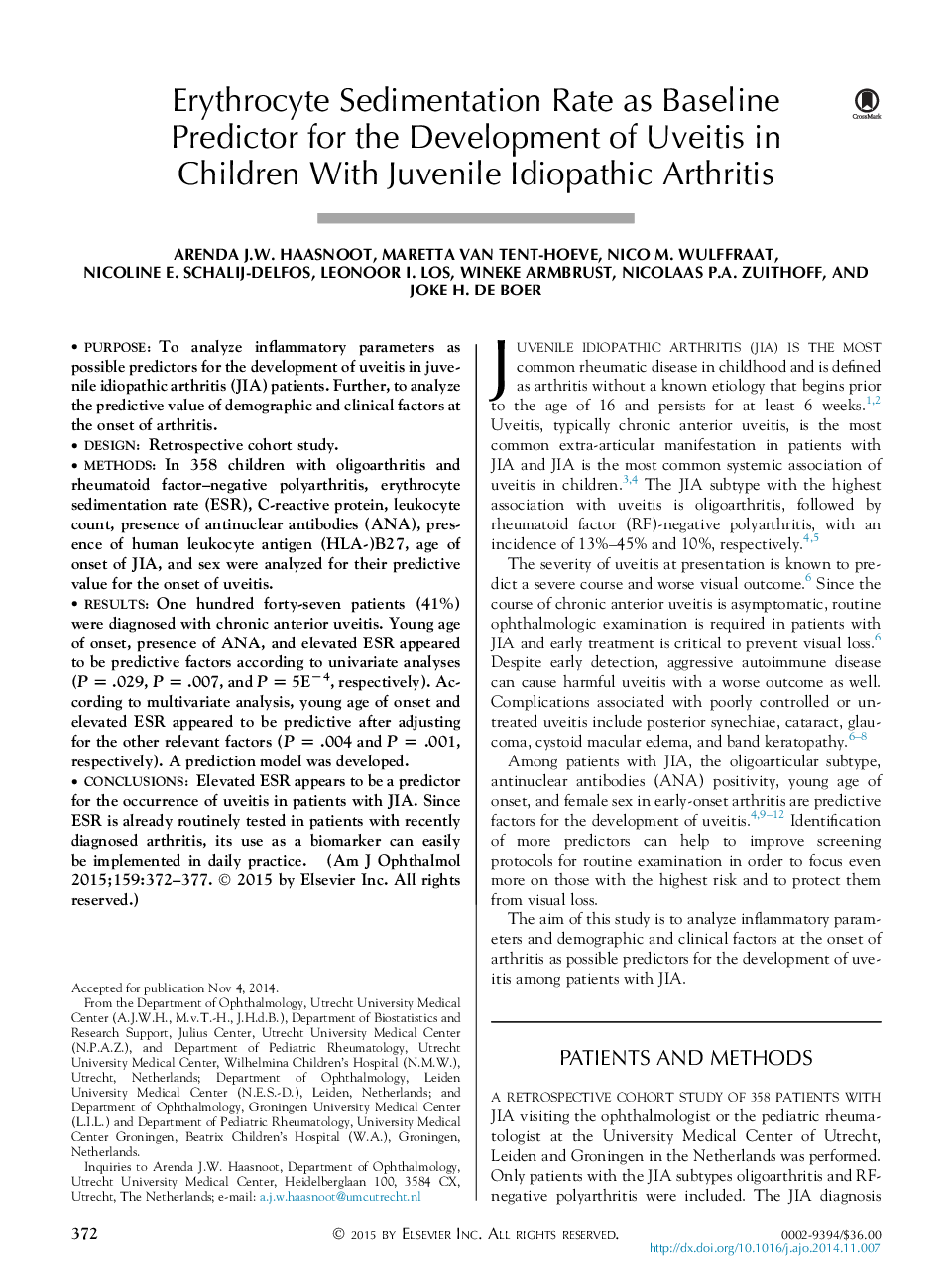| Article ID | Journal | Published Year | Pages | File Type |
|---|---|---|---|---|
| 6195657 | American Journal of Ophthalmology | 2015 | 7 Pages |
PurposeTo analyze inflammatory parameters as possible predictors for the development of uveitis in juvenile idiopathic arthritis (JIA) patients. Further, to analyze the predictive value of demographic and clinical factors at the onset of arthritis.DesignRetrospective cohort study.MethodsIn 358 children with oligoarthritis and rheumatoid factor-negative polyarthritis, erythrocyte sedimentation rate (ESR), C-reactive protein, leukocyte count, presence of antinuclear antibodies (ANA), presence of human leukocyte antigen (HLA-)B27, age of onset of JIA, and sex were analyzed for their predictive value for the onset of uveitis.ResultsOne hundred forty-seven patients (41%) were diagnosed with chronic anterior uveitis. Young age of onset, presence of ANA, and elevated ESR appeared to be predictive factors according to univariate analyses (P = .029, P = .007, and P = 5Eâ4, respectively). According to multivariate analysis, young age of onset and elevated ESR appeared to be predictive after adjusting for the other relevant factors (P = .004 and P = .001, respectively). A prediction model was developed.ConclusionsElevated ESR appears to be a predictor for the occurrence of uveitis in patients with JIA. Since ESR is already routinely tested in patients with recently diagnosed arthritis, its use as a biomarker can easily be implemented in daily practice.
